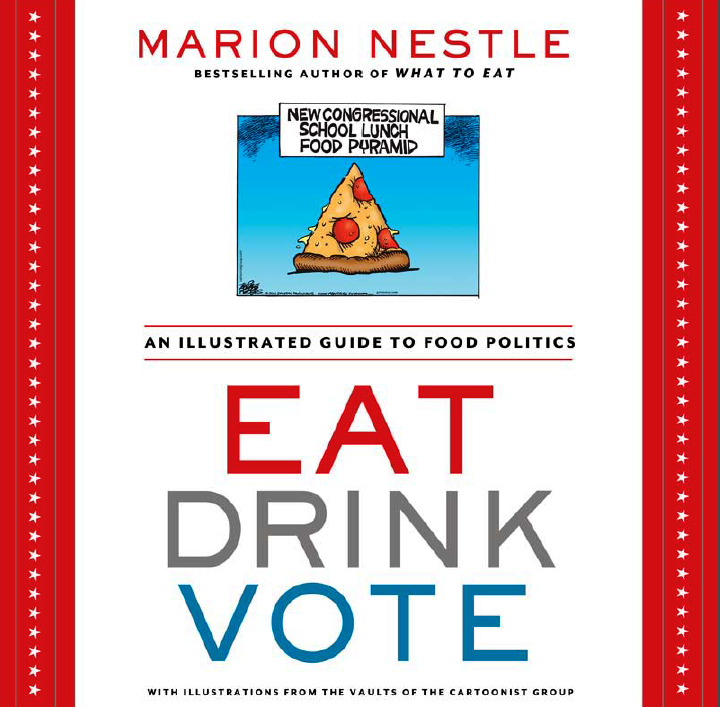Eat, Drink, Vote: my (single) advance copy!
I’m happy to report that my advance copy of Eat, Drink, Vote: An Illustrated Guide to Food Politics arrived yesterday afternoon. This book is my summary of the current state of food politics, illustrated with about 250 cartoons from 40 terrific cartoonists.

It’s really fun (if I must say so myself).
Read about it on its own page here. Bookstores are taking orders.
It comes out the first week in September.






